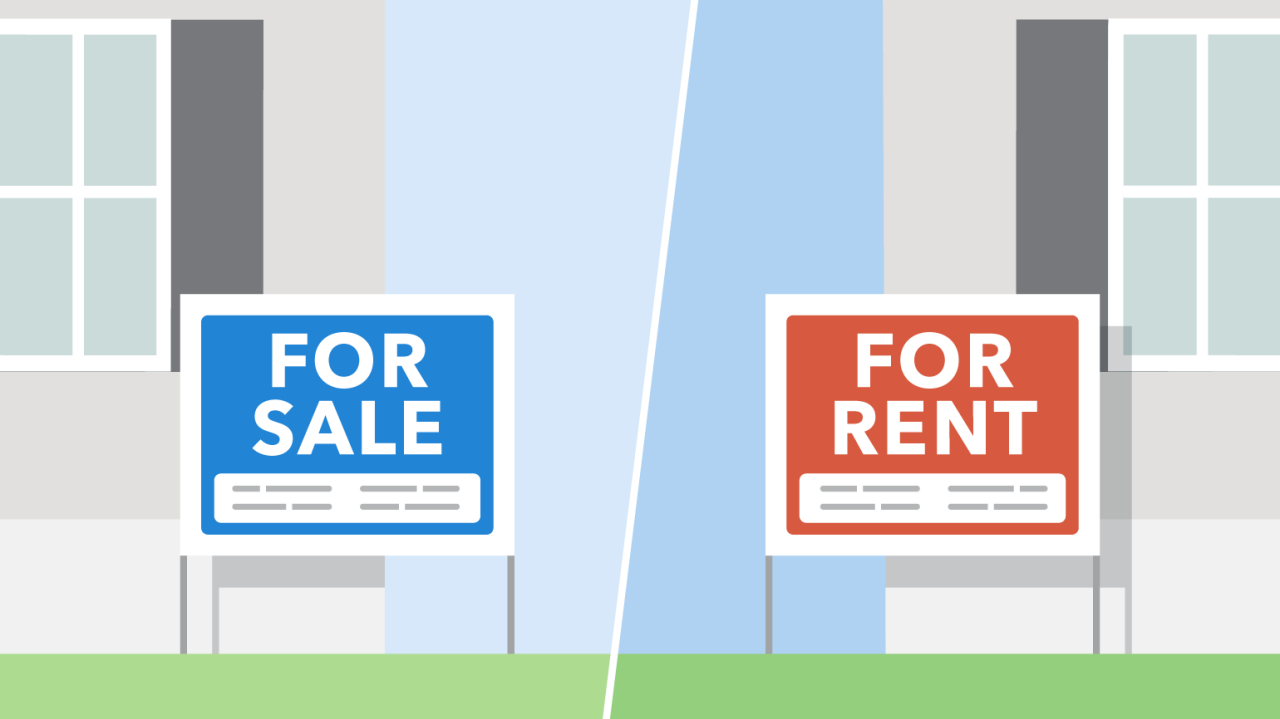Introduction
If you’ve found yourself searching for “How to Sell a Rental Property in Vancouver WA,” chances are you’re feeling a bit overwhelmed. Maybe you’ve inherited a property, or perhaps you’re simply tired of being a landlord. You might be considering a sale but are unsure about the best route to take. Is it worth going through a traditional listing with an agent? Or would a cash sale be quicker and more beneficial? Maybe you’re struggling with tenants, dealing with repairs, or facing financial hardship and need to make a sale fast.
At this moment, you’re likely looking for clarity. You want answers to questions such as: “What’s the process of selling my rental property in Vancouver WA?” “Should I sell with tenants still in the property?” “What are the tax implications of selling my rental?” “Are there benefits to selling for cash?” More importantly, you want to understand whether selling on the open market is the best option, or if you should consider a faster, easier solution like selling directly to a real estate investor. This blog will address your concerns step by step and guide you through the pros and cons of each approach to ensure that you make the best decision for your situation.
How to Sell a Rental Property in Vancouver, WA

Selling a rental property in Vancouver, Washington, is a significant decision that requires careful planning and consideration. Whether you’ve been a landlord for years or are selling your first rental property, there are several factors to take into account. From choosing the right method to understanding the potential costs and tax implications, every detail matters. This blog will walk you through everything you need to know about selling your rental property, including common challenges, potential benefits, and the steps to take to ensure you get the best deal possible.
Step 1: Understanding Your Options When Selling a Rental Property in Vancouver, WA
When it comes to selling your rental property in Vancouver, WA, there are typically two main options: selling through a real estate agent or selling directly to a real estate investor for cash. Each option has its benefits and disadvantages, and your personal circumstances will ultimately dictate which route is best for you.
Selling Through a Real Estate Agent
Listing your rental property on the market with a real estate agent is the most traditional method. You will need to stage the property, conduct open houses, and wait for a buyer who can secure financing. While this method can result in a higher sale price, it also comes with additional time and costs. Depending on the market, it could take weeks or even months to find the right buyer, especially if the property needs significant repairs or if you have tenants still living in the unit.
Costs Involved:
- Agent Commission: Typically 5-6% of the sale price.
- Repair Costs: You may need to invest in repairs to make the property more marketable.
- Holding Costs: You will still be responsible for paying the mortgage, taxes, insurance, and maintenance until the property sells.
Selling Directly to a Cash Buyer
Selling directly to a real estate investor for cash can be a much faster process. If your goal is to sell quickly and avoid dealing with repairs, tenants, or long waiting periods, selling for cash may be your best option. Real estate investors typically buy properties as-is, which means you don’t need to worry about making repairs or even cleaning the property.
Benefits:
- Speed: You can often close in as little as 7-10 days.
- No Repairs Needed: Investors buy properties as-is, saving you time and money on repairs.
- Certainty: Cash sales are less likely to fall through since investors often have the funds readily available.
Step 2: Can You Sell a Rental Property With Tenants in Vancouver, WA?
One of the most common questions landlords have when selling a rental property is whether it’s possible to sell with tenants still in the property. The short answer is yes, but there are some things to consider before moving forward.
Legal Considerations for Selling a Property With Tenants
In Vancouver, WA, selling a property with tenants in place is legal, but you must follow the proper legal procedures. Depending on your lease agreement and the tenant’s situation, you may need to provide them with a notice to vacate the property, or they may be allowed to remain after the sale.
If you’re selling to a real estate investor, you’ll often find they are more flexible about keeping tenants in the property, and may even offer to let the tenants remain in place. However, if you’re selling through a traditional sale, the new buyer may require that the tenants vacate before the sale is finalized.
For more on selling with tenants in place, check out Can You Sell a Rental Property With Tenants in Vancouver WA?.
Step 3: How to Sell a Vacant Rental Property in Vancouver, WA
Selling a vacant rental property can be simpler than selling one with tenants, as there are fewer logistical hurdles to consider. Without tenants in place, you have the freedom to show the property to potential buyers at any time and make necessary repairs without worrying about disturbing current residents.
Benefits of Selling a Vacant Property
- Flexibility: You can stage the property for showings or open houses.
- No Tenant Issues: You won’t have to deal with tenants’ rights or scheduling showings around their availability.
- Repairs: You can easily make repairs or improvements before listing the property, potentially increasing its market value.
Disadvantages of Selling a Vacant Property
While selling a vacant rental property can be easier, it does come with some downsides. You may face higher carrying costs, such as paying the mortgage, insurance, taxes, and utilities while the property is vacant. In addition, vacant homes are more susceptible to vandalism or theft.
If you’re wondering how to approach a vacant rental sale, take a look at How to Sell a Vacant Rental Property in Vancouver WA.
Step 4: Tax Implications of Selling a Rental Property in Vancouver, WA
When selling a rental property, understanding the tax implications is crucial. Depending on your situation, selling your property can have significant tax consequences, including capital gains taxes and the possible recapture of depreciation.
Capital Gains Tax
Capital gains tax applies when you sell an asset for more than its purchase price. If you’ve owned the rental property for more than a year, the sale will be subject to long-term capital gains tax, which ranges from 0% to 20% based on your income level.
Depreciation Recapture
If you’ve taken depreciation deductions on the property over the years, you may need to pay taxes on that depreciation when you sell the property. This is called depreciation recapture, and it is taxed as ordinary income, which can be as high as 25%.
To learn more about taxes when selling rental properties, check out Tax Implications of Selling a Rental Property in Vancouver WA.
Step 5: Selling an Underperforming Rental Property in Vancouver, WA
If your rental property is underperforming—meaning it’s not generating the rental income you expected or is costing more in repairs than it’s worth—you might be wondering whether it’s time to sell. Selling an underperforming property can help you cut your losses and free up capital for better investments.
When Should You Sell an Underperforming Property?
You may consider selling if:
- Your property is consistently vacant or has high turnover rates.
- Maintenance costs are eating into your profits.
- You no longer see potential for appreciation in the property value.
Benefits of Selling an Underperforming Rental:
- Stop the Financial Drain: Get rid of a money-losing asset.
- Reinvest in More Profitable Properties: Free up capital for better investment opportunities.
- Reduce Stress and Hassle: Let go of the frustrations that come with managing a problematic rental.
For tips on selling underperforming rentals, read Selling an Underperforming Rental Property in Vancouver WA.
Step 6: Benefits of Selling a Rental Property for Cash in Vancouver, WA
When you sell your rental property for cash, you can avoid many of the common headaches associated with traditional sales. Cash sales are typically faster and more straightforward, which is especially beneficial if you need to sell quickly.
Speed and Simplicity
A cash sale can close in as little as 7-10 days, compared to the months it can take to sell through an agent. With a cash buyer, you can avoid the lengthy process of waiting for buyer financing to come through.
No Repairs Needed
Cash buyers typically purchase properties as-is, meaning you don’t need to spend time and money on repairs. This can be particularly helpful if the property is older, requires significant work, or if you’re simply tired of making constant repairs.
For more on the benefits of cash sales, take a look at Benefits of Selling a Rental Property for Cash in Vancouver WA.
Step 7: How Market Conditions Affect the Sale of Rental Properties in Vancouver, WA
When selling your rental property, it’s important to understand how local market conditions in Vancouver, WA, can affect your sale price and timeline. The state of the real estate market is constantly shifting, so it’s essential to keep an eye on market trends that could influence your decision.
Buyer Demand and Property Prices
If the local market is experiencing high demand and low inventory, you may be able to sell your rental property at a premium. In such a market, you might attract multiple offers, driving the price up. On the other hand, if the market is more saturated or experiencing a downturn, you may find that offers are lower than expected, or the sale takes longer.
You can track the latest trends in Vancouver’s real estate market through resources like Redfin Market Data, which provides real-time data on home prices, trends, and inventory levels.
Seasonal Considerations
The real estate market tends to follow seasonal patterns, with spring and summer often being the most active times for buyers. Listing your property during a seller’s market can help you maximize your sale price. However, selling in the off-season (fall and winter) can present challenges, such as fewer potential buyers, but you may also face less competition from other sellers.
Understanding these factors can help you time your sale for maximum benefit. While the market conditions in Vancouver, WA, might not always be within your control, knowing what to expect can help you plan your sale effectively.
Step 8: The Costs of Selling a Rental Property in Vancouver, WA
Understanding the costs associated with selling your rental property is essential to avoid any surprises. From agent fees to closing costs, these expenses can add up quickly. Let’s break down some of the key costs you should consider when selling your rental property in Vancouver, WA.
Agent Commissions
If you decide to sell through a real estate agent, you will typically pay a commission fee, which ranges from 5-6% of the final sale price. This fee is split between the listing agent and the buyer’s agent. For example, if you sell your property for $300,000, you could pay $15,000 in commissions.
Repair and Staging Costs
In order to make your rental property more appealing to buyers, you may need to invest in repairs or staging. Common repairs might include updating appliances, fixing leaks, or repainting rooms. Staging the home to make it look more inviting can cost anywhere from a few hundred to a few thousand dollars, depending on the extent of the changes needed.
To understand the potential costs of home staging, consider browsing HomeAdvisor’s Staging Costs Guide, which provides estimates based on the size of the property and the level of staging required.
Closing Costs
At closing, you’ll be responsible for various fees, including title insurance, escrow fees, and transfer taxes. These costs can range from 1-3% of the sale price, depending on local regulations. In Vancouver, WA, you may also need to account for capital gains taxes, which can affect the overall amount you pocket from the sale.
For an overview of common real estate transaction fees, visit Bankrate’s Guide to Closing Costs. This will help you better estimate your total expenses.
Step 9: The Emotional Side of Selling a Rental Property in Vancouver, WA
Selling a rental property isn’t just a financial decision—it can also be an emotional one. If you’ve owned the property for many years, it may feel like you’re letting go of a part of your life. Whether it’s the memories tied to the property or the relationships you’ve built with tenants, the process of selling can stir up emotions.
The Bond with the Property
Landlords often form an emotional connection to their properties, especially if they’ve made improvements or managed the property for a long time. This connection can sometimes cloud your judgment and make it harder to let go. Recognizing this emotional attachment is an important part of making a rational decision. If you’re struggling with this, it may be helpful to step back and assess the financial reality of the situation.
Feeling Overwhelmed by the Selling Process
The decision to sell a property can also bring up feelings of uncertainty and stress, especially if the property has been underperforming or causing headaches. The pressure of getting a good price, handling repairs, and negotiating with potential buyers can be overwhelming. This is where working with a real estate investor can provide peace of mind, as they offer quick, cash sales with no need for repairs or extensive negotiations.
Step 10: Is It Better to Sell My Rental Property Now or Wait?
One common dilemma landlords face when considering a sale is whether to sell now or wait for a better time. The decision depends on a combination of factors, including your personal situation, the real estate market, and the condition of your property.
Selling Now: The Advantages
If you’re facing a time-sensitive situation, such as financial strain, tenant issues, or an urgent move, selling now might be the best option. A cash sale can close quickly, allowing you to address your financial needs without waiting for the market to improve. Additionally, if interest rates are rising, buyers may be less likely to secure financing, and you could miss out on a strong selling window.
Waiting for a Better Market
If you’re in no rush and the market is currently in a slump, waiting might make more sense. If you believe property values will rise in the future or interest rates will decrease, holding onto your rental property for a few more months or even a year could result in a higher sale price.
However, it’s important to weigh the ongoing costs of holding onto a rental property, such as maintenance, mortgage payments, and potential vacancies. For some property owners, the stress of dealing with tenants or repairs may outweigh the potential future benefits.
Conclusion: Should You Sell Your Rental Property in Vancouver, WA?
Selling a rental property in Vancouver, WA, involves several factors to consider, including the property’s condition, the current market, and your personal financial situation. While listing with a real estate agent is the traditional route, selling for cash offers the advantage of speed, simplicity, and certainty—especially if you’re facing tenant issues, repairs, or financial challenges.
Before you make your decision, it’s crucial to weigh the benefits and drawbacks of each method. If you need a quick, hassle-free solution, selling for cash might be the best option for you. However, if you’re not in a rush and want to maximize your sale price, working with a real estate agent might be the better choice. Regardless of which path you take, understanding all potential costs and implications is key.
If you choose to sell quickly and without complications, PineCone Properties is here to help. We specialize in buying rental properties for cash, offering fast, fair offers without the need for repairs or lengthy negotiations. Our team is dedicated to providing a straightforward, efficient process so you can move on with peace of mind. Let us help you make the best choice for your situation and ensure a smooth, stress-free sale.

